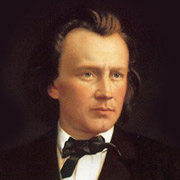Said and Done
July/August 2011 Edition
Published by the Office of the Dean
MIT School of Humanities, Arts, and Social Sciences

“There has been a lot of genuine uncertainty about whether
it makes a difference when you give people Medicaid.
The short answer from our study is that it does.”
— Amy Finkelstein, MIT Professor of Economics
A short performance by three MIT students that will inspire and energize your day or evening! The MIT Chamber Music Society performing the Finale of the Trio for Piano, Violin, and Horn by Johannes Brahms (Trio Op. 40, 1865)
Watch
RESEARCH PORTFOLIO
Research Portfolio
Research is the engine for the School's capacity to help meet the world's great challenges. To name just a few areas of impact, the School's research helps alleviate poverty, safeguard elections, steer economies, understand the past and present, improve health policy, articulate morality, plan space policy, assess the impact of new technologies, understand human language, advance musicology, and create new forms at the juncture of art and science.
Research Portfolio
Interview at Slate magazine
MIT economist Jonathan Gruber's ideas shape health care reform at state and national levels
Good health care—and health care delivery systems—are crucial to our personal, national, and global well-being. Slate magazine interviews MIT Professor Jonathan Gruber, one of the world's leading health economists, whose ideas animate both the US and Massachusetts health care models.
Interview at Slate
Q&A at Slate

MIT economists demonstrate the health and financial benefits of Medicaid
Landmark study shows the effects of health insurance program: better health and fewer financial shocks for the poor, more bills paid for hospitals and doctors. Professors of Economics Amy Finkelstein (a principal investigator) and Jonathan Gruber contributed to the study.
Full story at the The New York Times and MIT News
John Tirman explores the fate of civilians in America's wars
Americans are greatly concerned about the number of our troops killed in battle, and rightly so. But why, Tirman asks, are we often oblivious to the far greater number of casualties suffered by those we fight and those we fight for? Tirman is a principal research scientist and executive director at the MIT Center for International Studies. His new book is The Deaths of Others.
More

Face value
The looks of political candidates are a key factor influencing voters, a phenomenon identified by a number of scholars in recent years. A new study by MIT political scientists adds to this research by detailing which groups of citizens are most influenced by candidate appearances, and why. The tendency is most prevalent among low-information voters who watch a lot of television.
Story by Peter Dizikes at MIT News
Bookshelf
The research of MIT's School of Humanities, Arts, and Social Sciences appears principally in the form of books and publications, as well as music and theater productions. These gems of the School provide new knowledge and analysis, innovation and insight, guidance for policy, and nourishment for lives.
Take a look

KUDOS
2011 Infinite Mile Awards recipients honored at luncheon
Congratulations to Jacqueline Breen, Literature; Margo Collett, History; Mabel Chin, History; Andrew Dorner, Economics; Kristen Ferry, Foreign Languages and Literatures; Richard Eberhardt, Comparative Media Studies; Harlene Miller, Center for International Studies; Peter Weise, German Lecturer in Foreign Languages and Literatures; and Marc Shotland, Research Associate in JPAL.
More + Photogallery

NEWS AND FEATURES
Tea with The Economist
The Economist magazine interviews MIT Professor of Economics Abhijit Banerjee on his transformative ideas for reducing poverty.
Video interview
MIT report cites arts as essential to mission
Rooted in experimentation, risk-taking and imaginative problem-solving, the arts at MIT connect creative minds across disciplines and encourage a lifetime of exploration and self-discovery. Artistic knowledge and creation strengthen MIT’s ability to realize the aesthetic, human, and social dimensions of research and innovation, and to meet the challenges of the 21st century.
More
The Mirage of a Space Between Nature and Nurture
"Evelyn Fox Keller, Professor of History and Philosophy of Science, comes at the old nature versus nurture question from an interesting direction. What do you mean, she asks, by versus." Article in The Daily Kos.
Read More

Central Bankers | gender differences in money management
"At the Massachusetts Institute of Technology in Cambridge—where Fed Chairman Ben S. Bernanke and Bank of England Governor Mervyn King taught—only 16 percent of undergraduate and graduate students studying economics in 1980 were women, compared with 40 percent this year." This article discusses gender differences in money management at the micro and macro levels.
Story at Bloomberg Businessweek
MIT Japan 3/11 Initiative raising funds and awareness
A multidisciplinary group of MIT faculty has created the MIT Japan 3/11 Initiative. Pat Gercik, associate director of MISTI, the SHASS-based international education program, is coordinating the program which aims to establish a community center for the area, as well as long-term research.
More
Award winning game, Symon, available to play
Developed by the Singapore-MIT GAMBIT Game Lab, Symon, the Best Browser Game from the 2010 Indie Game Challenge, has been updated with new features and is now free to play at Kongregate.
Story and links to game at MIT News

School in the News
A collection of recent news about the School's research from major US and international publications.
More
The power of Creole
Professor of Linguistics Michel DeGraff's ambitious plan to reduce poverty and inequality in Haiti involves elevating the status of the native Creole language. Story at The Boston Globe.
Read More
MULTIMEDIA
MIT Chamber Music Society plays Schubert
MIT students and alums of the MIT Chamber Music Society play the first movement of the String Quintet in C major by Franz Schubert.
Watch
Doing Anthropology
Cultural anthropology is a social science that explores how people understand, and act in, the world. But what, exactly, do cultural anthropologists do? How do they approach their research? In this short film, three members of the School's Anthropology section, Stefan Helmreich, Erica James, and Heather Paxson, talk about their current fieldwork.
Watch
STAY IN TOUCH
Calendar
The daily answer to what's happening
Facebook
Welcome to our social media community
Twitter
Follow
Subscribe
RSS News
RSS Multimedia

